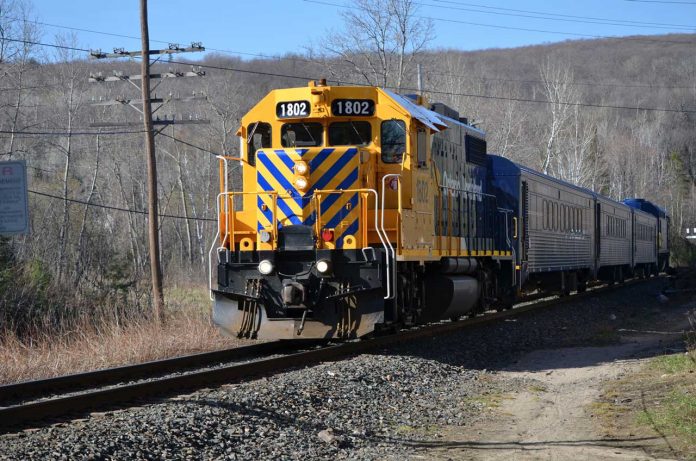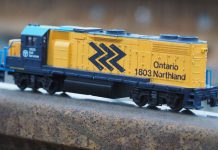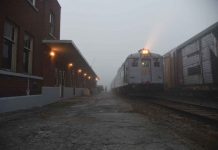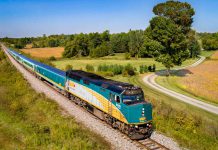Province’s plan remains short on critical details
Former U.S. president Ronald Reagan once said: “If politics were a musical, it would be Promises, Promises”
When you consider how often the Ford government has pledged to bring back the Northlander passenger train, it’s kind of astounding a Broadway musical marking its imminent return to service hasn’t already been composed.
Over the last five years, Cabinet ministers and MPPs have made various passenger rail announcements in Northern Ontario. Among the more compelling ones are the business case documents, the purchase of new trainsets and the decision to build the Timmins-Porcupine Station.
The province received encouraging news regarding its modern fleet’s ability to perform under the harshest of winter conditions in the region. It will now go ahead with improvements to some of the existing railway and station infrastructure.
Developments like these are welcome. They represent a change from the status quo Northerners are accustomed to — usually neglect or indifference from policy makers.
Yet beneath all the hype and hoopla, I can’t help but notice the same old catch phrases being reused by politicians.
Sure, they talk a big game about restoring the Northlander. But they continue to dance around the issue of providing the public with a clear timetable for its redeployment.
The trains were supposed to be running by the end of the Ford government’s first term in office. The goal posts have since moved to the mid-2020s.
Different standards for transit
Why must the devil always be in the details when it comes to large scale societal projects?
It appears the region’s passenger rail service will be funded by Ontario Northland’s freight contracts. Does this mean the average cost of operating the Northlander will be covered by profits from the freight division and/or a cubic ton surcharge on freight?
If it doesn’t, what percentage of the average cost will be covered? What percentage comes from the Gas Tax and from fares?
Several more questions:
- Why was this financial model chosen?
- Will this be the primary/only source of ongoing funding?
- Has Queen’s Park asked Ottawa to chip in like they previously did?
- In the event of economic downturns, would the number of weekly runs be reduced or cut outright?
- Finally, based on what criteria does a successful service looks like?
The Ministry of Transportation has potentially come up with an innovative way to invest and sustain intercity public transit in the North.
However I don’t recall other Crown agencies operating services under similar conditions.
Remember when the Wynne government lowered fares on the Union Pearson Express by 50% due to low ridership? How about when GO Transit provides free/discounted travel across its network?
Taxpayers from all corners of the province subsidize this. Why shouldn’t the same apply to the Northlander?
These days, Ontario Northland’s services seem to come and go like the wind. Customers pay more to travel relatively the same distances and to destinations mutually served by GO, or their federally funded counterparts —VIA Rail Canada.
The KISS principle
The government says it’s working on a plan for an efficient passenger rail and connecting bus network that maximizes connectivity. Still, I have my doubts whether they’ve learned from mistakes made in the past.
The province intends to operate the Northlander based on seasonal travel demands — ranging from four to seven days a week.
This could be problematic for residents north of North Bay who’ve seen bus service halved and their passenger train eliminated during the previous decade. Anything less than daily is inconvenient and impractical when planning out of town appointments or visits.
There’s also been no word of rebuilding Kirkland Lake’s Swastika Station or what the Timmins-Cochrane rail connection will look like.
Public transportation remains quite complicated to use in Northern Ontario. There are too many isolated routes and very often no practical connections between providers — a concept VIA Rail hasn’t yet grasped in Greater Sudbury and beyond White River.
We’re likely going to have one shot at bringing back passenger rail to the northeast.
If the Ford government intends to honour its commitment — and avoid wasting precious time and resources like with the soon-to-be cancelled London GO Train experiment, the new Northlander has to be reliable, frequent, affordable and comfortable. It should link people to places they need to get to.
Northerners don’t want to be left in limbo. They won’t accept anything less than concrete results.
Éric Boutilier is a columnist for Northern Tracks, a self-published blog related to intercity transportation in Northern Ontaro.







